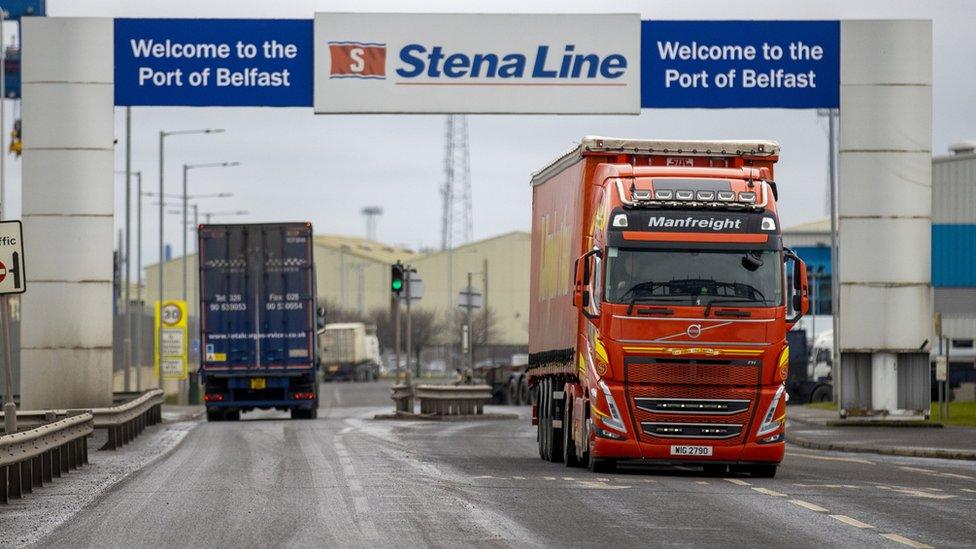Vets' strike: NI secretary to meet reps, says Nipsa
- Published
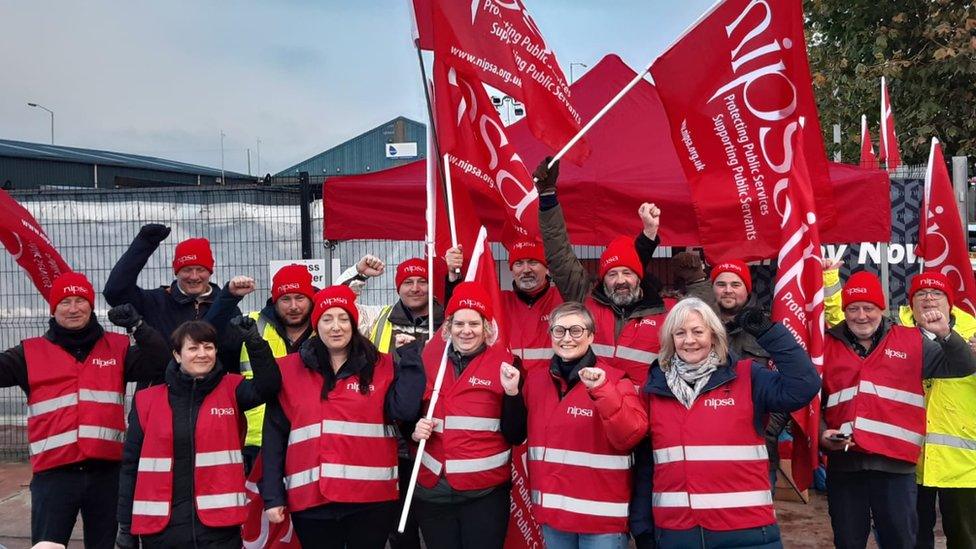
The five-day Nipsa strike action is due to finish on Friday
Representatives of striking government vets are to meet the Northern Ireland secretary to discuss industrial action, a trade union has said.
Nipsa members in the Veterinary Service Animal Health Group (VSAHG) started the action on Monday.
However, the Northern Ireland Office (NIO) said the UK government has no authority to negotiate public sector pay in Northern Ireland.
The five-day strike action is due to finish on Friday.
Government vets perform controls and checks on animals and some food products entering Northern Ireland from Great Britain.
These controls are mostly a requirement of Northern Ireland's Brexit deal, the Windsor Framework.
They also have to monitor the operation of abattoirs and certify some meat exports.
Nipsa said the walkout was over a "decision to impose a derisory pay award of £552" for civil service staff.
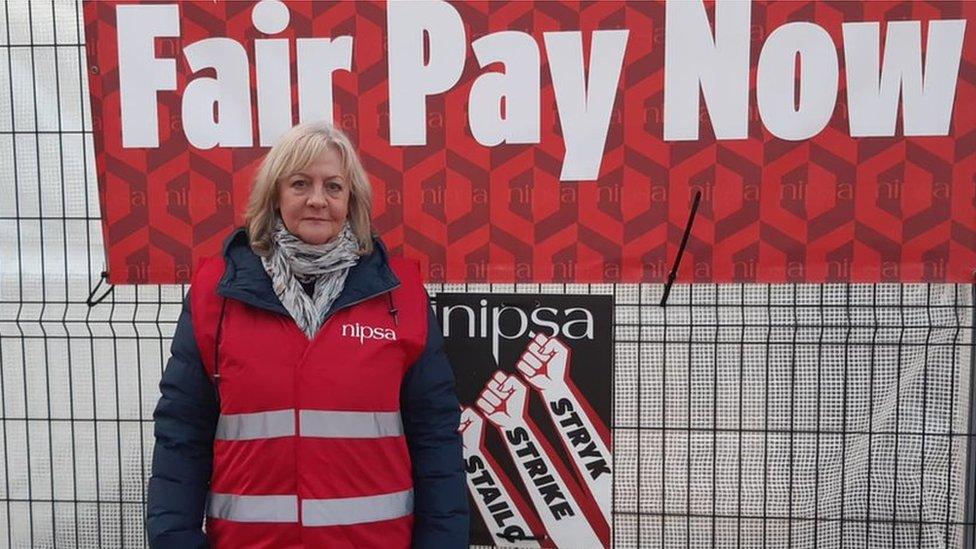
"Nobody wants to see us back on the picket line," says Nipsa's Carmel Gates
Carmel Gates, from Nipsa, said while union members are not expecting the UK government to negotiate with them directly, they are expecting it to instruct civil servants to begin negotiations.
"Nobody wants to see us back on the picket line," she said.
Ms Gates added that, while the pay dispute is a matter for the Northern Ireland Assembly, the Northern Ireland secretary is the "purse holder".
"Even if there is a return to an assembly, unless the treasury makes funds available, the NI Assembly won't be able to do anything as they have inherited a cuts budget."
In a statement, the NIO says it had reached out to Nipsa representatives regarding a future meeting and added that the UK government has no authority to negotiate public sector pay in Northern Ireland.
"The Secretary of State's priority is to see the return of devolved government," it added.
Deputy president of the Ulster Farmers' Union John McClenaghan said he understands why the vets are striking but said the action has impacted different sectors in different ways.
"They gave a derogation around the poultry industry recognising the welfare issues that would be there if there wasn't a capacity within the factories - so that has functioned normally," he said.
"Both our pig factories have functioned at reduced capacity and probably the biggest effect has been in the red meat sector.
"But we've seen a little bit of movement on a rotational basis around the factories and that has taken the pressure off that supply coming in."
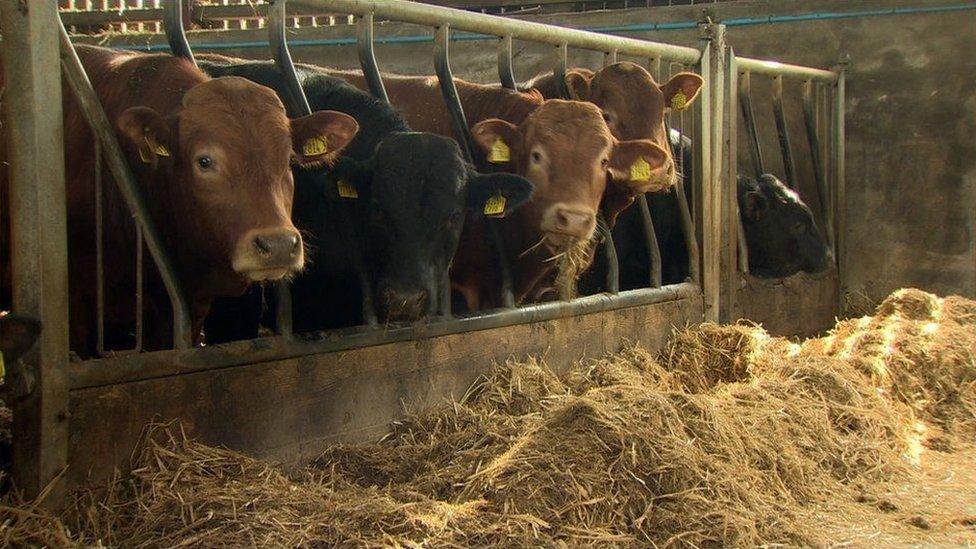
Government vets perform controls and checks on animals and some food products entering Northern Ireland
The strike meant some products needed to be shipped through Dublin rather than Belfast.
This potentially affected some "red lane" goods - food products entering Northern Ireland from Great Britain which are due to be moved on to the Republic of Ireland or which have an uncertain final destination.
Those goods have to be checked, while "green lane" goods which are staying in Northern Ireland are subject to lighter-touch processes.
But according to Neil Johnston of the Northern Ireland Retail Consortium, the strike has had little impact on the consumer.
"A lot of what comes through at the ports goes through the green channel and is subject to minimal checks," he said.
"There may be issues about supply from the processing sector but in terms of getting stuff into Northern Ireland it hasn't really impacted at all."
Related topics
- Published30 October 2023
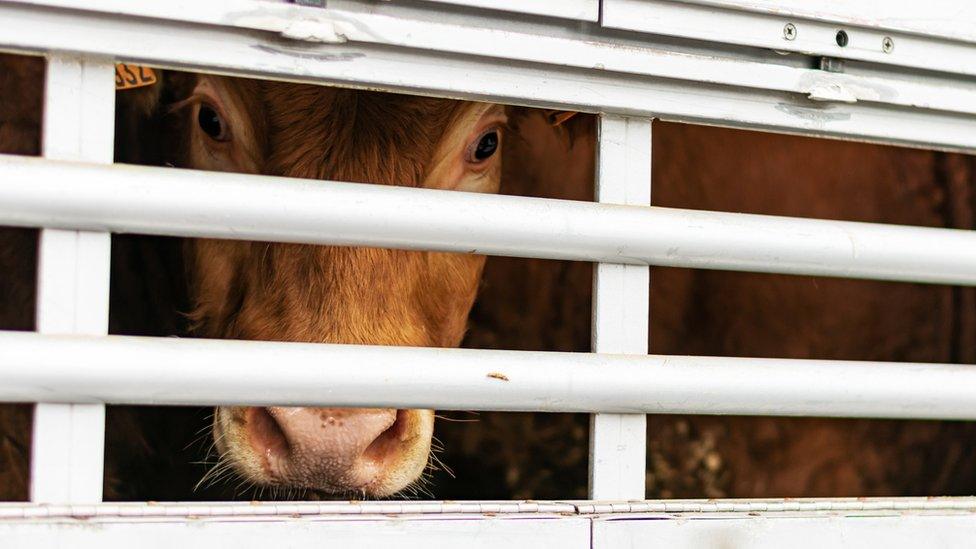
- Published26 October 2023

- Published27 February 2023
